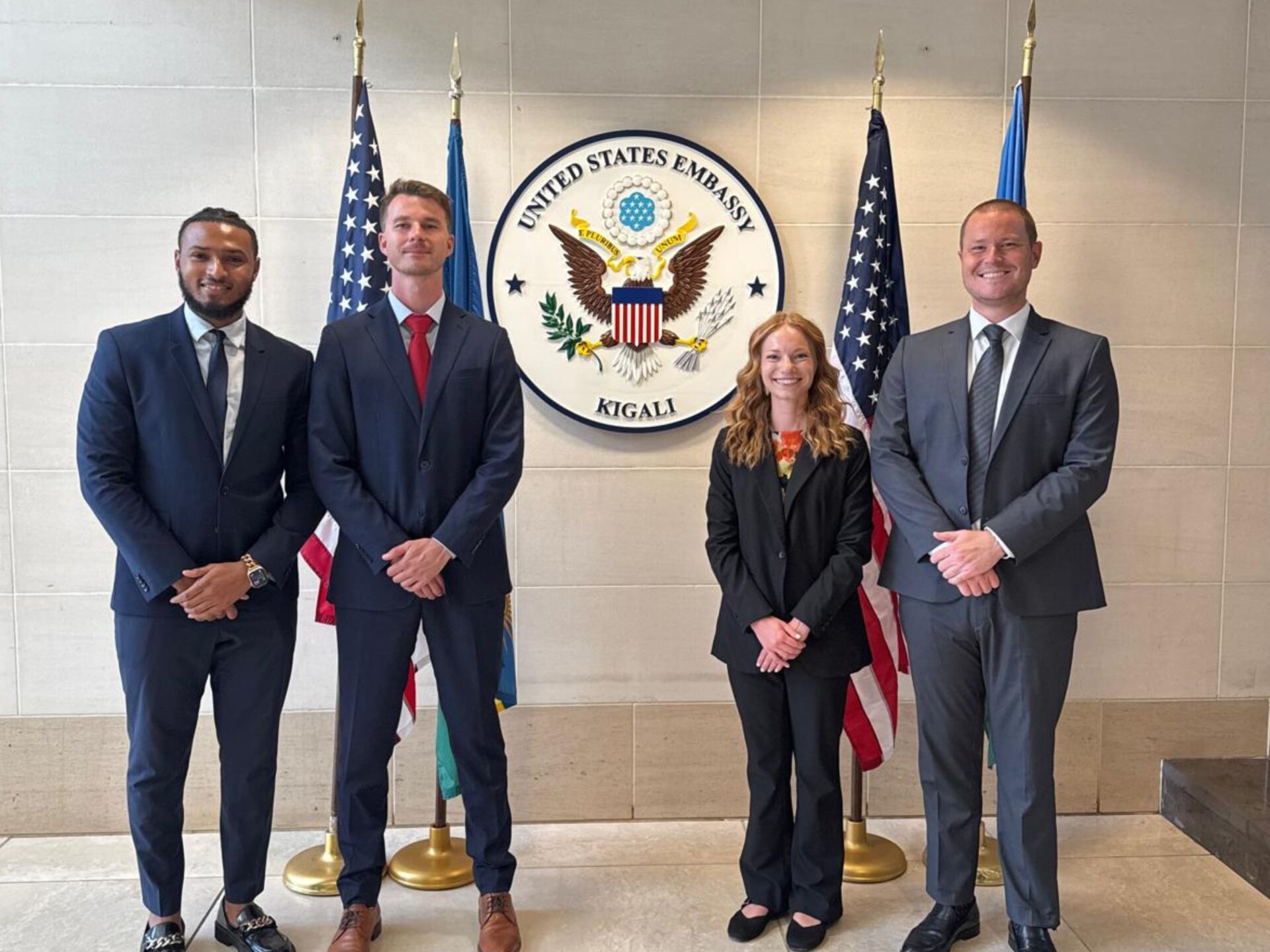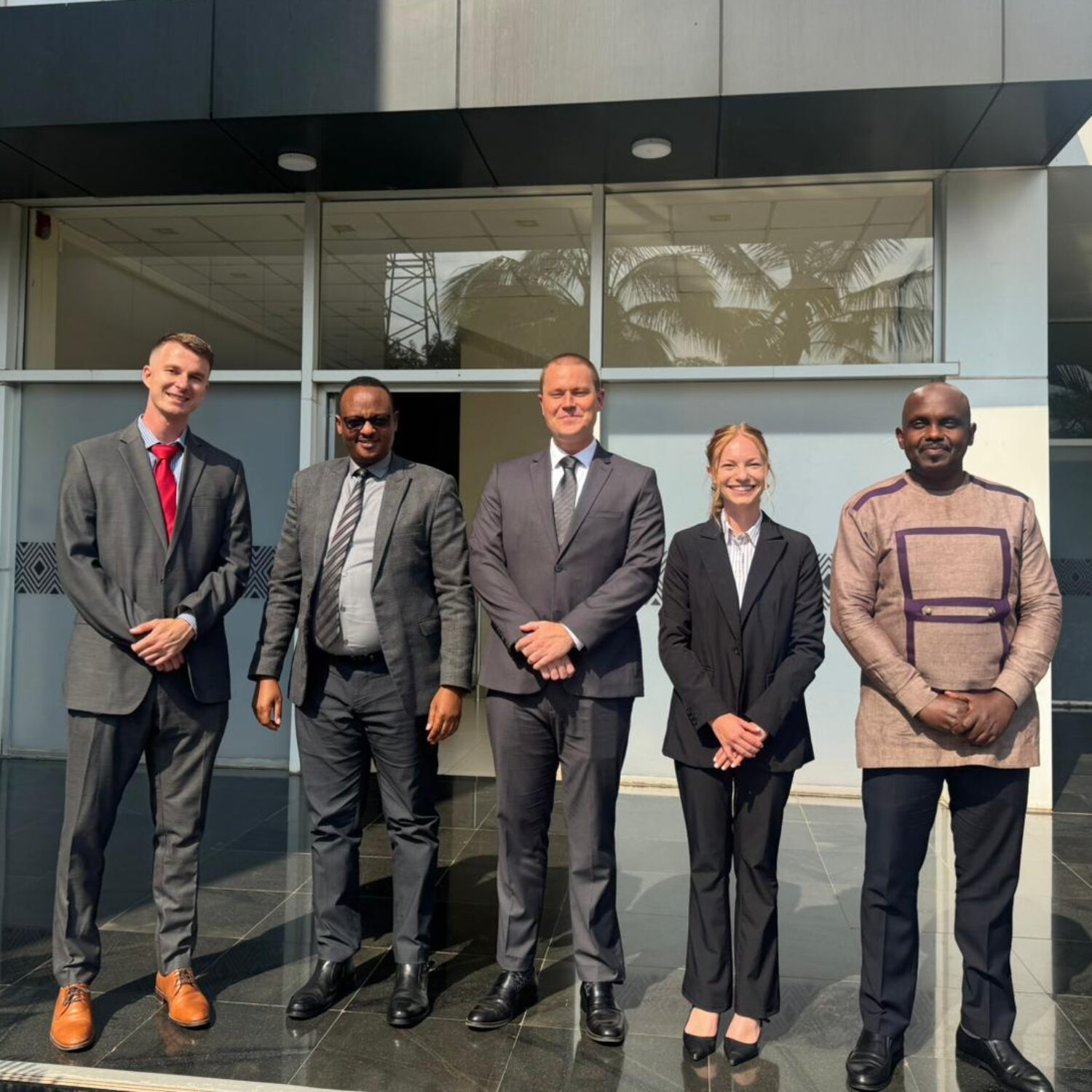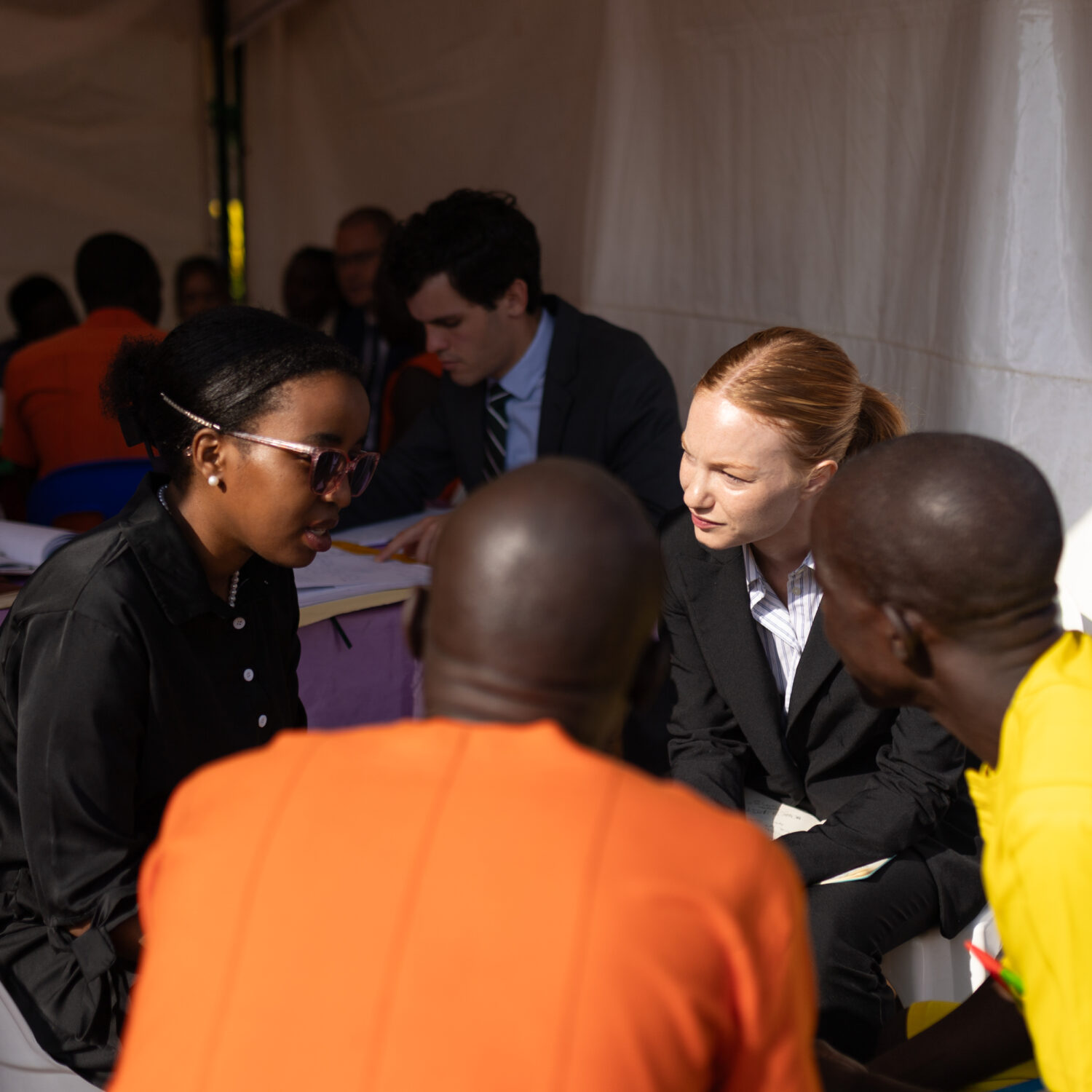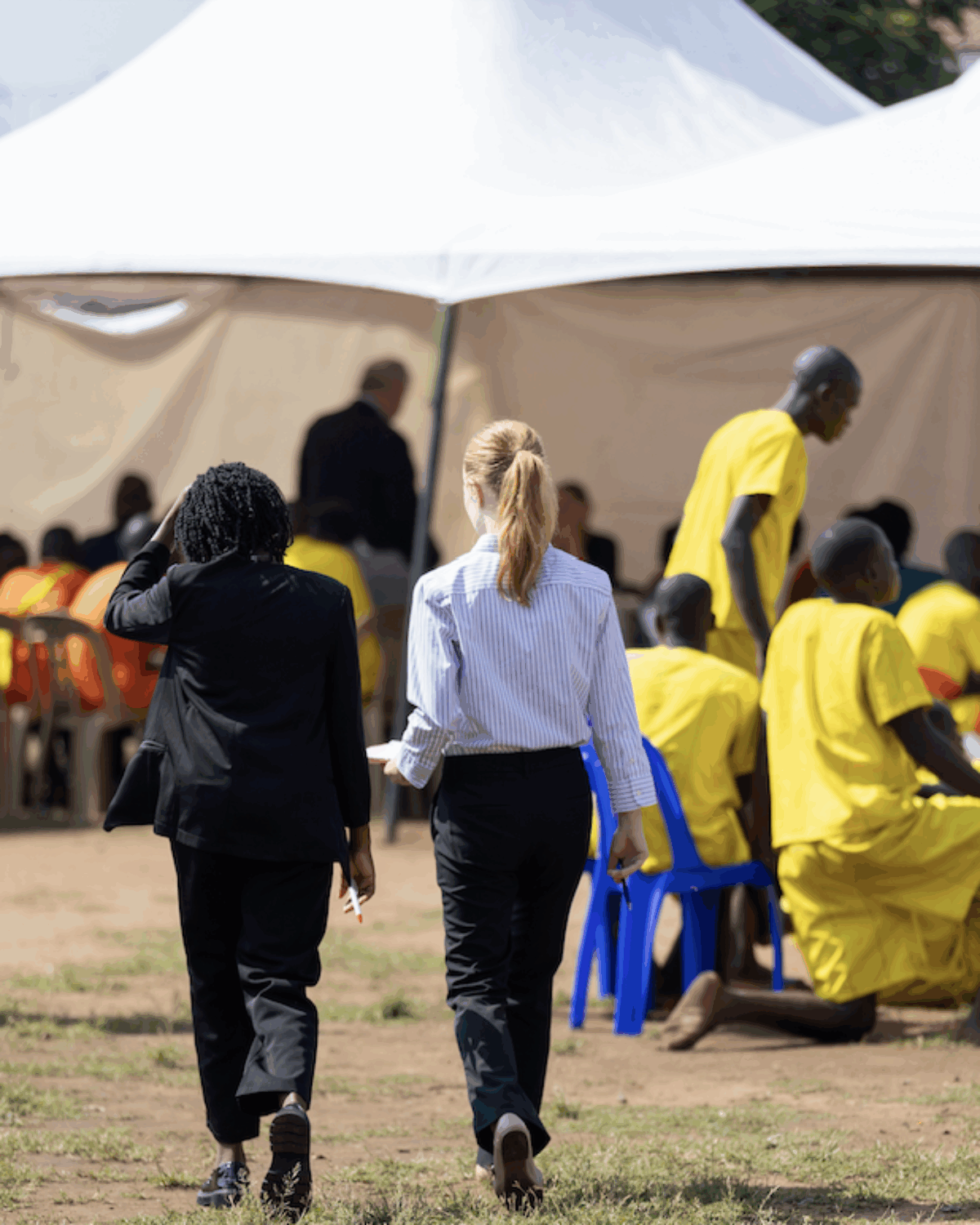This past summer, 2L Cassidy Winters traveled more than 8,000 miles from Austin to work at the Supreme Court of the Republic of Rwanda in Kigali.

Winters spent May through July 2025 as a judicial law clerk for the court through the Sudreau Global Justice Institute, an international organization based out of Pepperdine Caruso School of Law. As a clerk, Winters conducted legal research on how judiciaries worldwide are using artificial intelligence and made recommendations to the Supreme Court, as well as working for the president of the Court of Appeal to increase access to justice for vulnerable individuals. She was supported financially through the Law School’s Summer Public Service Program and Texas Law Fellowships.
“The Summer Public Service Program is designed to enable our students to pursue meaningful public service work wherever it takes them—even across the globe,” says Nicole Simmons ’07, director of Texas Law’s William Wayne Justice Center for Public Interest Law, which administers the SPSP. “Cassidy’s experience in Rwanda and Uganda with the Sudreau Global Justice Institute exemplifies the kind of transformative opportunity we hope to make possible.”
Supreme Court Law Clerk
The opportunity gave Winters access to “brilliant legal minds, people who have overcome so much to build a justice system and have a different perspective on the law,” she says. The Rwandan hybrid legal system prioritizes efficiency and doesn’t confine itself to one specific approach—incorporating common law, civil law, and pre-colonial legal systems—she explains, which enabled Winters to be more legally creative and think about how what’s worked in other countries can be applied in Rwanda. “I expanded my global perspective of what legal systems look like, especially when it comes to restorative justice systems,” she says.

In 1994, the Rwandan genocide resulted in an estimated 800,000 killed people in just three months. “I had been to Rwanda previously, and learning more about the justice system and how it was rebuilt after the genocide was inspiring,” says Winters. She’d first visited the country while living in Ghana after completing her global master’s degree in international relations at Webster University in St. Louis. Today, Rwanda is “doing a ton of things right,” she says. “Their justice system—and especially the focus on reconciliation in mending communities—is beautiful.”
Along with two other interns, Winters researched how AI is used in justice systems worldwide, analyzed its success and limitations, and provided recommendations for how Rwanda could incorporate AI into the Rwandan Judiciary. The President of the Court of Appeal, Justice François Regis Rukundakuvuga, wrote to her that he truly appreciated the “excellent work” she’d done. The resulting memo “was particularly valuable, as it provided us with highly useful insights while we are working on integrating AI into our electronic system,” the justice noted.
She also produced two additional memos. The first addressed the impact of increased technological advancements in the justice system on communities with limited access or proficiency in digital tools and made recommendations for innovating while bridging this digital divide. The second considered recent technological innovations to address gender-based violence, specifically innovations in evidence collection and potential resulting procedural updates.
Representing Ugandan Detainees

Halfway through her summer, Winters also spent an “intensive” week in Uganda through Sudreau’s Prison Project. At a prison in the city of Gulu, Winters worked as part of a team alongside a lawyer and two law students from Uganda, as well as a lawyer and two law students from the U.S. Winters represented people on pre-trial detention in plea bargaining negotiations to alleviate the prison backlog. Her team met with clients and reviewed files, before visiting tents set up for negotiations with prosecutors. The experience taught her how to build trust with a client, negotiate with prosecutors, and tackle challenging criminal cases. “It was truly a life-changing experience,” Winters says.
Even while trying to alleviate the prison backlog, “there was a focus on giving everybody fantastic individual access to legal services,” she says. “It was incredible to participate in that and meet so many wonderful people through that process.”
Contributions, Lessons
“Undoubtedly, Cassidy’s many contributions in Rwanda and Uganda during her summer internship will have lasting effects,” says Kyle Smith, Sudreau’s director of Global Legal Training and Development, who served as Winter’s supervisor. “We are honored that Cassidy chose to spend her summer advancing the cause of justice in Africa.”

During her time in both Rwanda and Uganda, Winters applied what she’d learned at Texas Law. “The way Professor Mullenix talked about civil procedure fall semester, I’d be reading something over the summer about Rwandan civil procedure, and I could see, ‘This is similar or different from what we do in the U.S.’ That says a lot about how she taught, and I felt that way about all my classes.” Additionally, her experience in the Hutcheson Moot Court (which her award-winning mentor Janice Pierce ’93 had encouraged, even though Winters was “really nervous about it”) enabled her to provide coherent responses to Rwanda’s Supreme Court justices or the president of the Court of Appeal. Meanwhile, following her work with a client as part of the Parole Project, “Going into the prison in Gulu, even though it was very different and new, I could still have a moment of ‘Okay, you can do this. You have a foundation of knowledge coming with you,’” Winters says. “It made a huge difference.”
Winters took law school lessons, which she says can often feel theoretical to 1Ls, and recognized how they apply in the larger world. “This summer was a great opportunity to see myself as becoming a lawyer,” she says. “I do have the skills and abilities to be a great lawyer—that was encouraging to me. So, I feel a lot more confident in myself and the education I’m receiving, but also a lot more hopeful for what the law can do to change people’s lives, and how I can hopefully use the law one day to impact people and places for good.”
